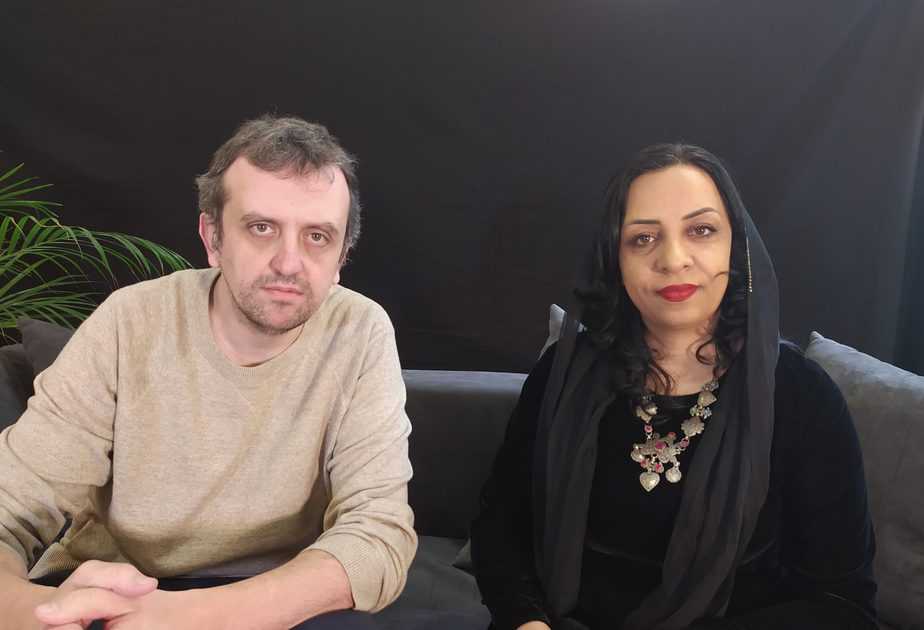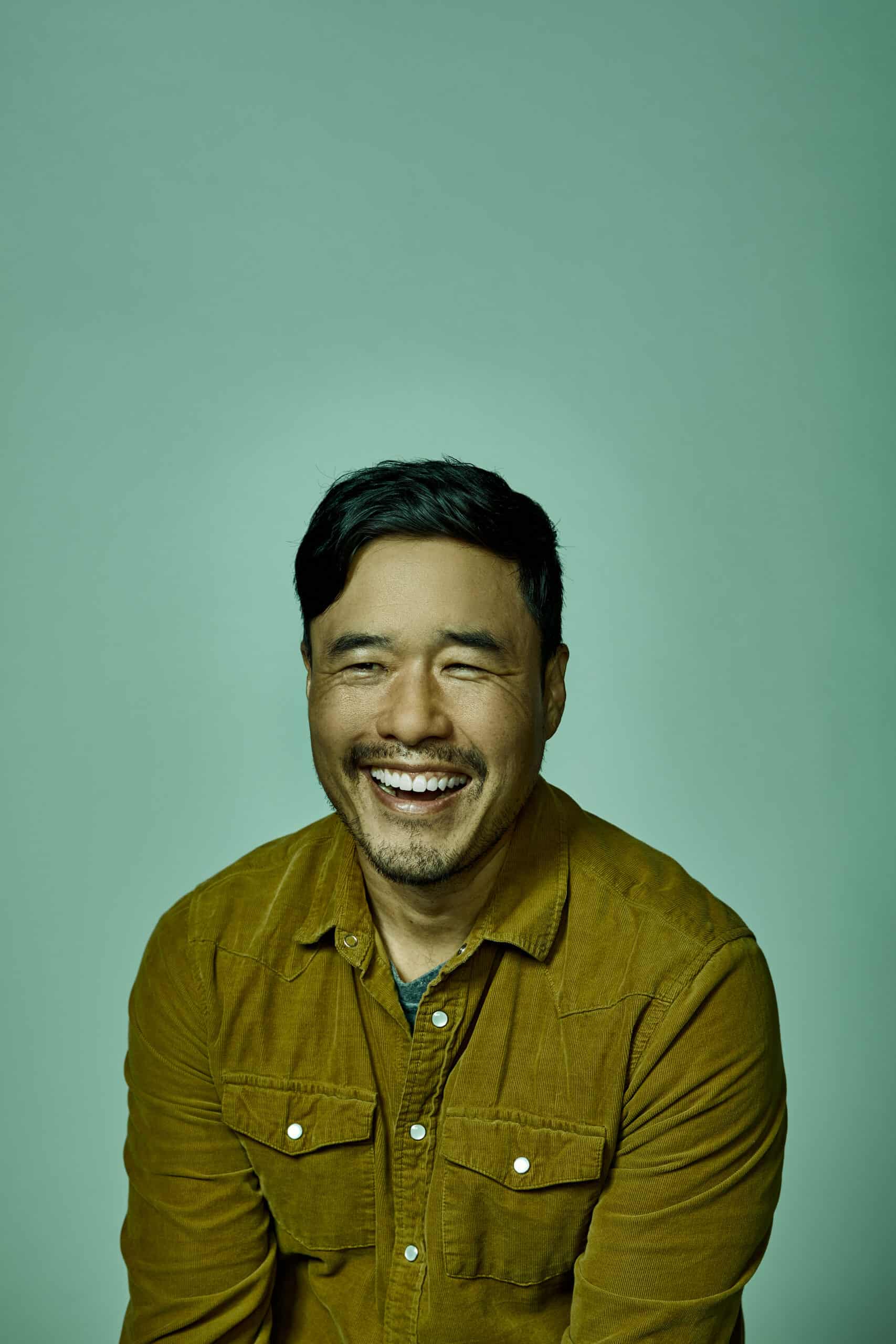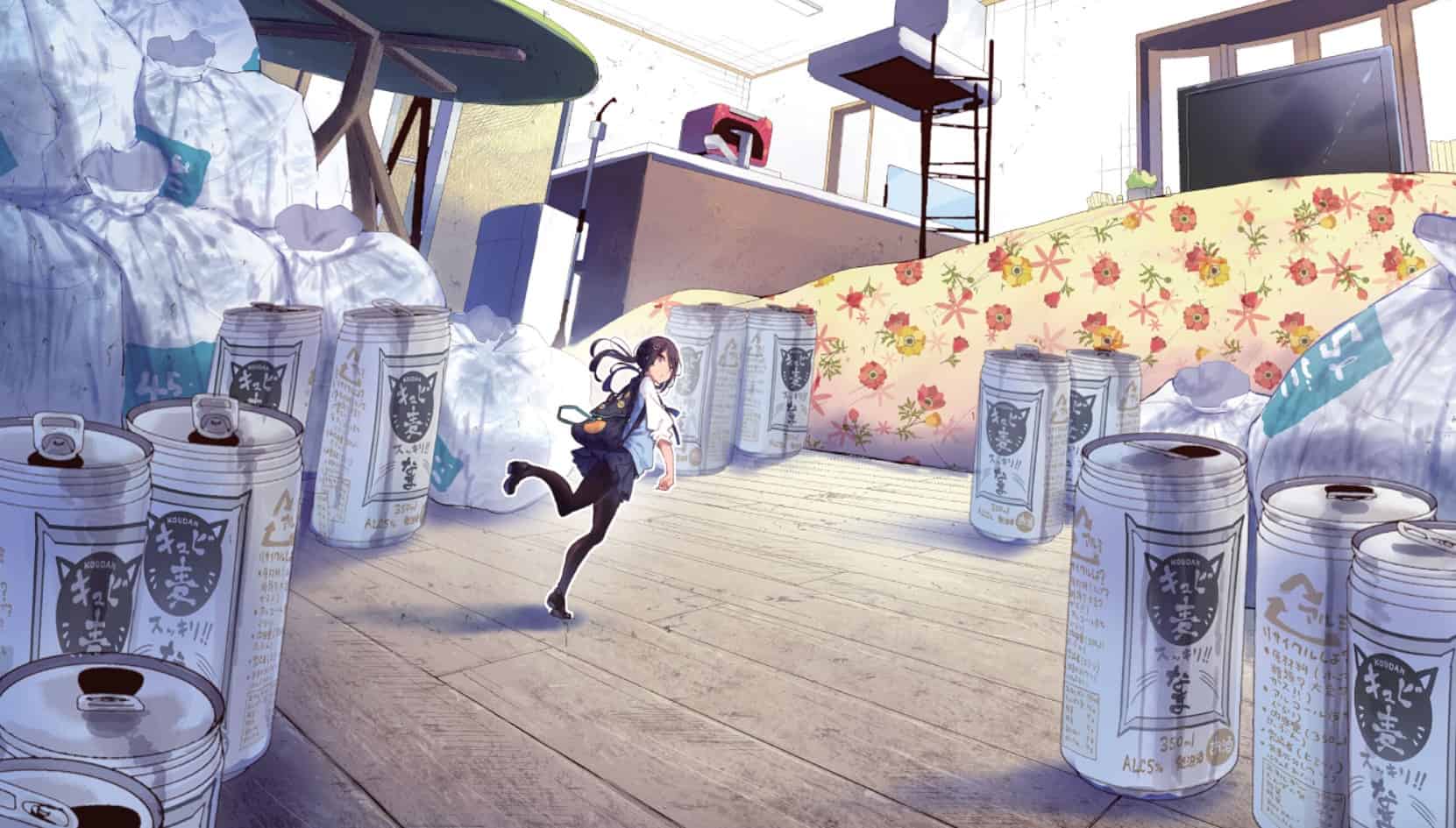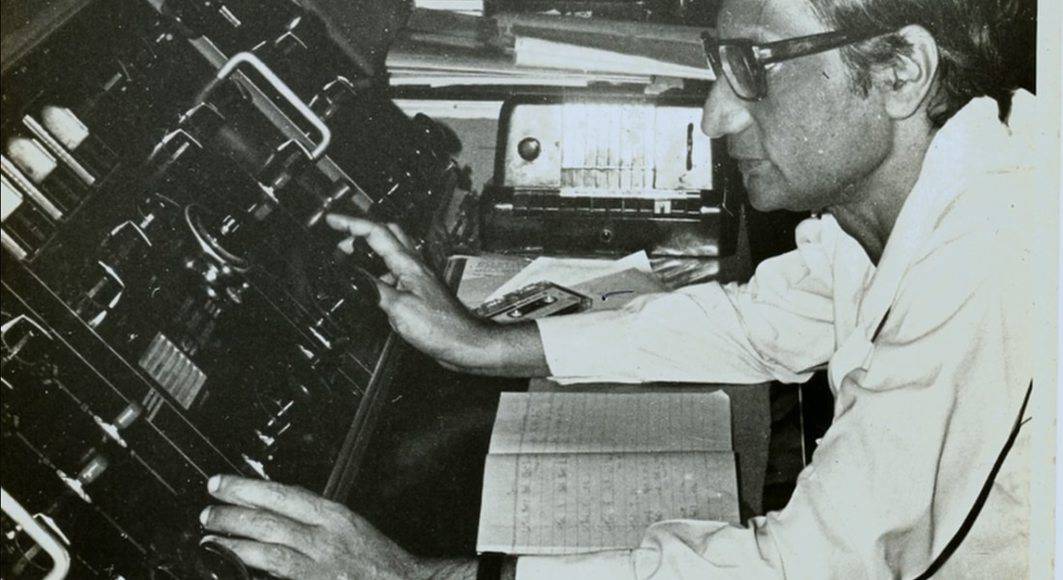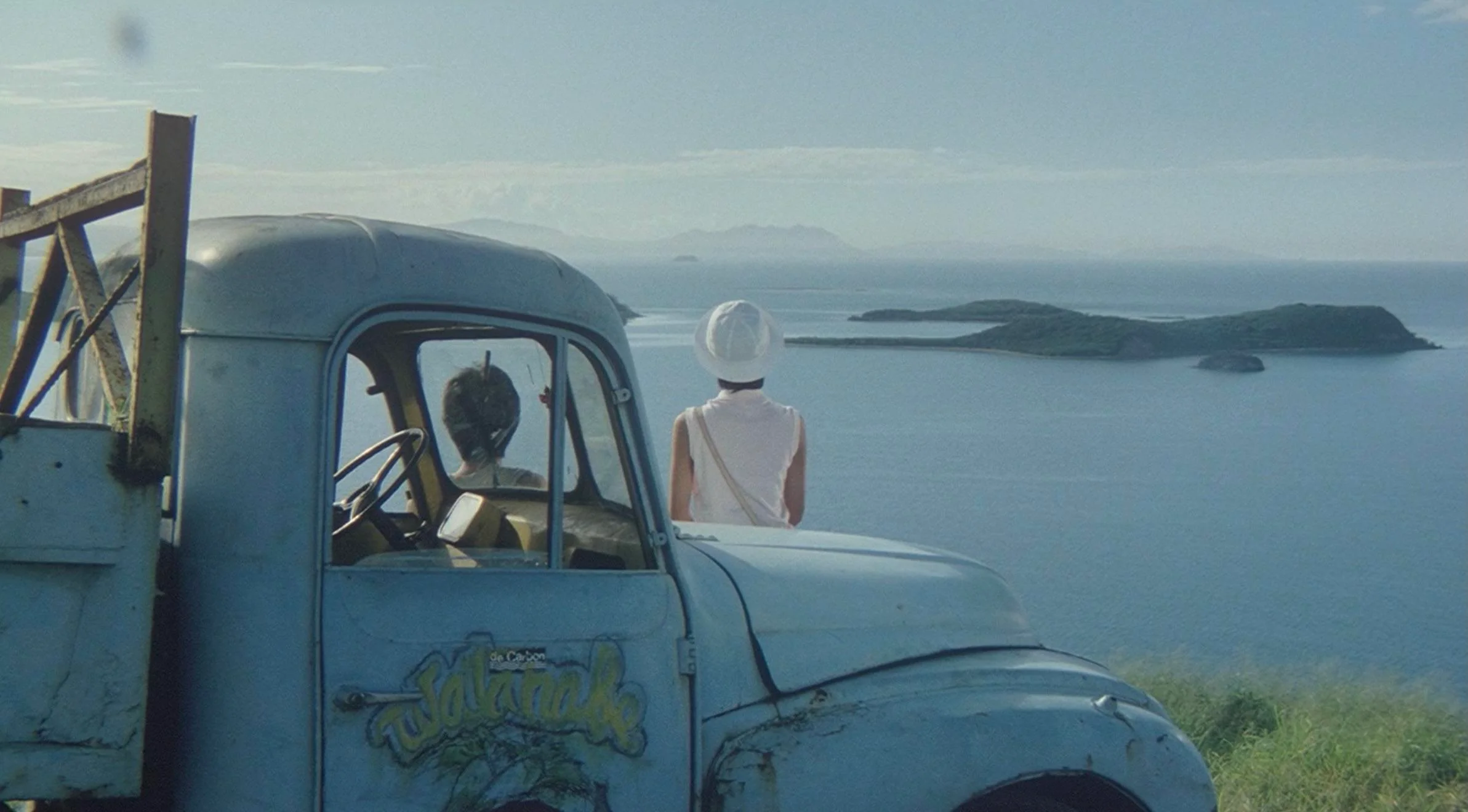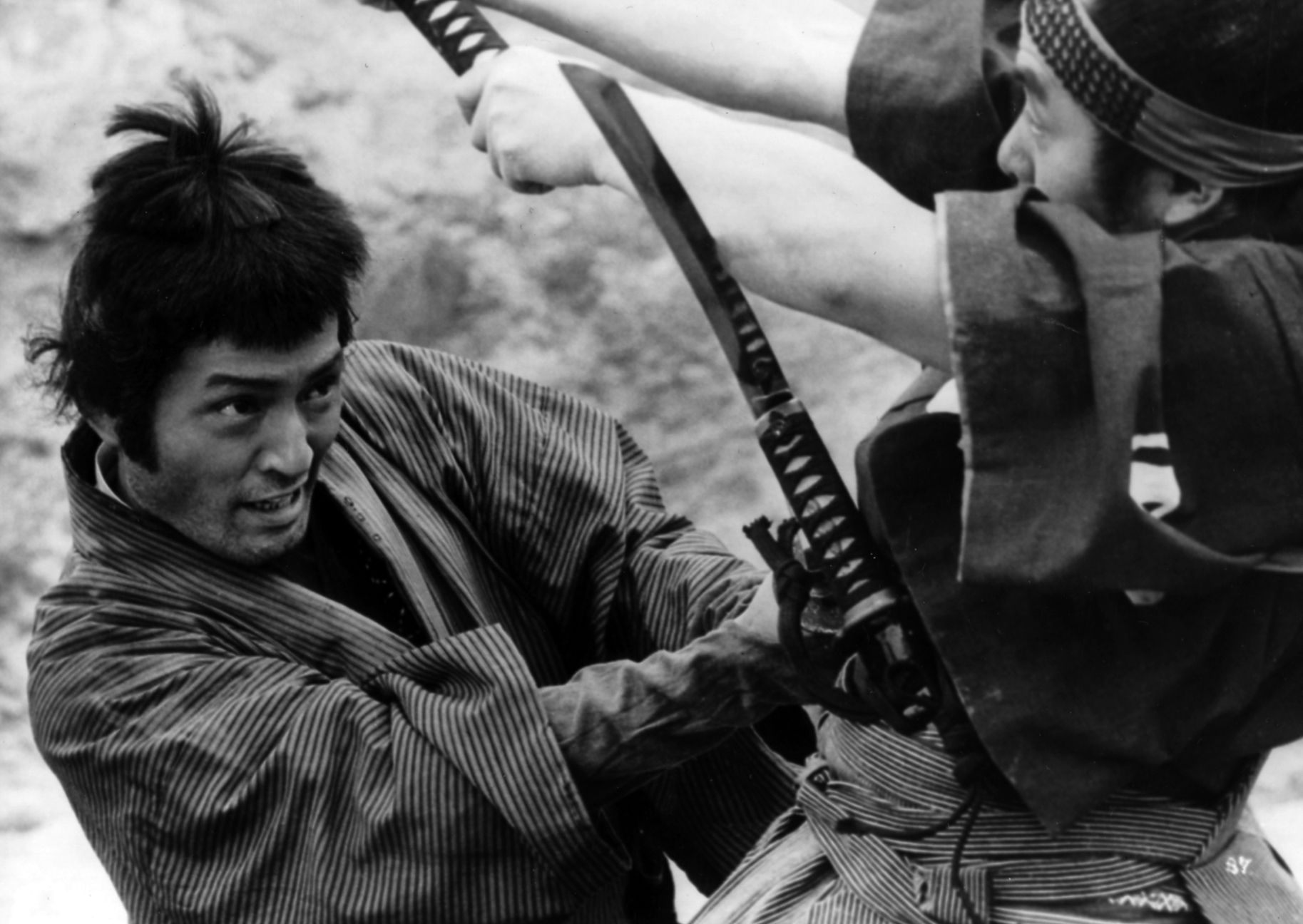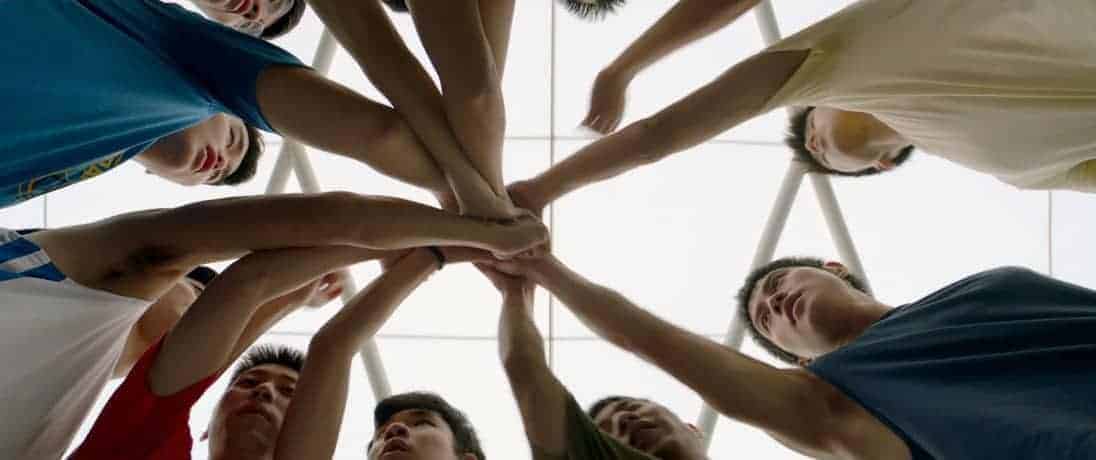Roya Sadat (born 1983; in Herat, Afghanistan) is an Afghan film producer and director. She was the first woman director in the history of Afghan cinema in the post-Taliban era, and ventured into making feature films and documentaries on the theme of injustice and restrictions imposed on women. Following the fall of the Taliban regime in the country, she made her debut feature film Three Dots. For this film she received six of nine awards which included as best director and best film. In 2003, she and her sister Alka Sadat established the Roya Film House and under this banner produced more than 30 documentaries and feature films. Sadat is also credited with establishing the International Women's Film Festival in Afghanistan in 2013 as co-founder and president.
On the occasion of her presence as President of the NETPAC Jury in FICA Vesoul, we speak with her about growing up under Taliban rule and the path that led her to filmmaking, shooting movies in Afghanistan, how the system works in the country, and many other topics.

How was the experience of growing up under Taliban rule, and how did you end up shooting movies in Afghanistan?
I was in school at the time, when the Taliban came in. In the beginning it was a joke for me, I could not believe it, when they announced that women could not go to school or to work, for example. When my sister's husband started telling us about these things that he saw when the Taliban came to Herat, and that we could not go to school anymore, we all laughed, we could not believe it. I told him that there have been a number of wars all over the world, but never has somebody come and demanded the schools to close.
After five years, my sisters, my mother, my aunt, and I were at home and my aunt tried to teach there, us and some daughters from the neighbor. Around that time, I started reading and writing some things, I was 15-16 years old. Before that, when I was in the fifth grade in school, I was very involved in cultural subjects along with my classmates. At the time, there was a theater in the city but all actors were men, so we started from school, which, for me, was a very good thing since it was something new. We did not have any specific space to practice, just a small room that our teachers allowed us to practice there. When the first play was finished, I asked my literature teacher but she told me that the faculty might not allow me to continue since I was a woman. Also, there were a lot of parents who did not like sending their daughters to a school where they could play in theater.
Finally, one day, we performed this play, everyone was happy, and other schools asked us to help them with their own stage plays. It was a very good time for me, but then the Taliban came and for the next five years, we just sat in home. At the same time, I think this period gave me the time to think about myself, to find myself and what I want to do. And then, since I had this experience of directing theater, I started writing my first film.
The five years of the Taliban rule was not just a bad period for Afghanistan, politically, but also in terms of the overall setting, even the environment. People lost many things, particularly those working in agriculture. A lot of people who lived near the borders came to the cities and I remember one day, when we opened the door, many families were sleeping on the street. I saw this young woman with a very small child and I asked my father if he could help her. Of course, there were no jobs for the people in the cities also but I asked some of them where their husbands or their brothers were, and they told me that they came from villages near Iran and the men tried to bring opium to Iran, but their families did not know what happened to them. It was very sad for me to watch all these women alone, some of them were very old. It was then that I wrote my first film, “Three Dots”. I was very sad at the time, and I just wrote what I was feeling, I did not plan it as a film, I just hoped that when the Taliban left, maybe I could shoot it. This was very important for me, more important than school even.
After the five years of the Taliban rule, a classmate and me had a program in national TV, and I was the first woman to work on TV after the Taliban Era. Then I met a journalist who came from Kabul, I told him about my films and he introduced me to Afghan Film, the government office in Kabul. I talked with them and we rented a camera and sound equipment. The tragic part is that when I started shooting the film, I just imagined the village of this young woman who talked to me, because it was very far in the desert and I could not find it. However, I was afraid that even if I found another village like that the governor of the area, who was a mujahidin commander, would not allow us to shoot or the young woman to act in it. Then I thought that we should look for a village outside the area, and when we found one, we had to face some other issues, because it was just after the war and there was still some fighting between the government and the Taliban, and also the international army was coming.
Furthermore, there were still mines laying around, which were not removed, so when we started shooting, there were people who did not want to move around specific places. Finally, we shot for ten days in that village and then we had to leave because some members of the crew received threats that they were going to be kidnapped, and so we moved to another location, to the west. However, half of my crew were from this village, so I decided to shoot in a location between the two. I love this film, “Three Dots” although it is not the best technically, since, for example, we did all the lighting with some small lamps. However, I did this movie with all my emotion, and this is why I love it so much, even more than “Letter to the President“, for example.

How did you come to meet Siddiq Barmak?
At the time, there were no smartphones or internet in Herat, so I did not know who Siddiq Barmak was. However, this journalist I mentioned, spoke to me about this famous director, who directed some films during the 80's and was a member of Afghan Film. Eventually he introduced him to me, and Barmak introduced me to some other people from Afghan Film, camera operators and sound technicians. Of course, I still did the costumes and makeup and some other stuff, since our crew was really small, but he helped in that regard.
Can you give me some details about Roya Film House?
When “Three Dots” screened in the festival in Kabul, the first festival after four years, it won awards and they invited me in the capital. While there, I used the internet and tried to read about companies and at the same time, I enrolled into a library to borrow books. The film was screened in some festivals outside Afghanistan and then the Afghan Human Rights Commission bought the rights of this movie, only for Afghanistan. They had a small budget of course, but the money were a very big help for me, since I managed to buy a camera and an editing console (because I actually edited “Three Dots” in the shop of a man who edits wedding films).
At the time, I thought it would be better to introduce a company, since we were two now, me and my sister Alka, who shot some documentaries between 2004 and 2007, when she went to study in Italy. She shot ten documentaries, she was very active. In 2004, we got the permission from our city to start the film company, and after two years, I went to Kabul and we registered the first woman film company in Afghanistan after the Taliban era. After my second film, I received an invitation from Tolo TV, which was a famous channel in the capital, and they wanted me to make a TV drama, the first TV drama in Afghanistan after the war.
Many firsts for you then (laughter).
Yes, you know when the minister told me that I was the first woman director, I thought it was a joke, I did not understand, because I knew we had good cinema in the 50s and 60s and many good actresses, and I thought that there were some female directors. However, they told that we did not and I was the first woman film director. In the beginning, it was really difficult for my family, since I lived in a city where people did not allow their daughters to go to school and I showed up with a camera. Shooting film was like a taboo work for women. Gradually, however, I saw some pregnant women in Herat, from my family or my neighborhood, who told me that if the child is a girl, they will name her Roya. My story is actually very interesting for people in Afghanistan, because they know from where I started. Of course, there are fundamentalists they have issues with me but many people are really supportive.
Can you give me some details about the festival you founded, International Women's Film Festival Herat?
The company is based in Kabul. I married in 2011, Aziz Dildar, whom I met in 2010, when he was professor at the cinema faculty but of course, at the time, he had no practical background. When he came into the company, he did his best to help, writing films and TV dramas, for example, and then Alka returned from Italy, where she studied documentary film. Then we started thinking about having a festival, since there were no festivals at the time. There was a Human Rights festival that run for two years and then closed and some festivals organized by the French Ministry of Culture and Goethe Institute. But those did not continue also, and I was thinking that there a lot of young filmmakers shooting short films, documentaries etc but there was no program to screen these films and talk about them.
Also, I was thinking that there are a lot of issues with women's rights in Afghanistan and I was wondering how we can involve the Human Rights and the Women's Rights activists with the cultural people from Afghanistan, but also from other countries. In 2013, there were as many as 10 cases in Herat where women burned themselves. We decided to name the festival International Women's Film Festival Herat and to launch it in Herat. One reason was because we wanted to talk about women's rights and the other because Herat is a historical city and has many good locations.

So, you only screen films from women directors?
No, films from male directors also. This year will be the 6th edition, in August, and we plan to have a new section, because a lot of filmmakers want to sent their films, especially Afghan ones, and this award will be given to a movie that does not have to be about women.
Does Islamic law still apply in Afghanistan? And how does this work with civic law?
It does, and particularly criminal law is supported by Islamic law, which, sometimes, becomes an issue, particularly since criminal law has not changed. Alka has shot a documentary about this issue titled “1,2,3” and she analyzes this conflict between civil and criminal law, and how it is connected with women's rights. Some civil rights organizations tried to change this law, they asked for many changes, for example for people under 18 years old to be considered children in legal terms, but this law has not been approved by the parliament yet. Because some people, men in particular, do not agree with this law.
Are you working on anything new at the moment?
We sent the script of the previous film from “A Letter to the President” to a number of film markets, for example, Busan and Gothenburg and it was selected and even won development funds from Gothenburg. However, when my producers tried to start the agreements for development, they stumbled upon the fact that the people interested did not believe they could produce a film in Afghanistan. But we have a production company, we shoot TV dramas, and for example, during the last two years, I have been on the streets the whole time, shooting, because we have a team and we can recognize which city and which location is safe. Not all life in Afghanistan is like the news you hear. I remember a foreign producer calling me one day asking if I was ok because he heard of suicide bombings but I explained to him that this happened near the borders with Pakistan, in another area, and that we are safe here. Some of the investors suggested that we choose a second location, but of course, if you are to transfer a whole crew to another country, and search for locations, for example, the budget becomes too high. I do not agree with this tactic, because the film takes more time to shoot and is also bad for Afghan cinema. So, I finally told Aziz and Alka, “I am going to make this movie this year, let's do this to show that it is possible to make this movie in Afghanistan” We had many financial problems, but in the end we managed to do pre-production, production and post-production in Afghanistan.
At the moment, we have three scripts and five projects, the two of them are not finalized, and I am in contact with some producers. The issue the producers have with security remains, however, and I did not agree for a second country. Because now in Afghanistan we have the equipment and the crew to shoot a film for about $150,000 but if we move to another country, the cost may easily go up to a million.

Do you think that now that Sahraa Karimi is the new director of Afghan Film, things will change for the better?
She is a very active woman and knows cinema, but the problem in Afghanistan is the system. For 18 years, we did not have any support from the government for culture, most of the funds, including the ones from international sources, go towards security. But we hope to see some change.


